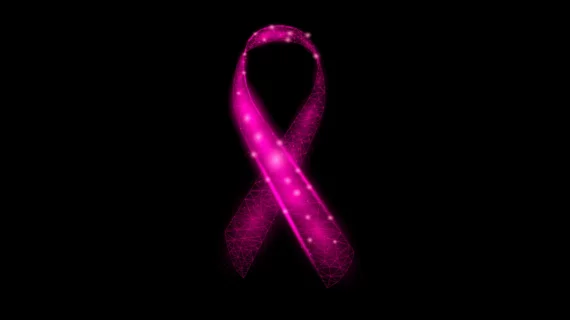AI effectively flags mammograms of women who would benefit from supplemental MRI
Artificial intelligence can be a beneficial assistive tool for triaging women who would benefit from supplemental MRI screening based on their mammogram findings.
A new study in Radiology details an AI algorithm’s effectiveness at flagging mammograms of women who may benefit from additional imaging due to an increased likelihood of developing breast cancer. Experts involved in the study believe the algorithm’s time-saving potential could help improve both radiologist workflows and patient outcomes.
Supplemental MRI scans are known to detect lesions not visible on standard breast cancer screenings. The modality is especially beneficial for spotting previously overlooked masses in certain groups of women—particularly those who have dense tissue and other risk factors that may heighten their odds of developing malignancy—though it is widely underutilized due to cost- and accessibility-related barriers.
“Evidence demonstrating the benefits of MRI screening in this subgroup of women is accumulating,” the study’s lead author, Suzanne van Winkel, RN, a PhD candidate at Radboud University Medical Center (Radboudumc) in Nijmegen, Netherlands, noted in a news release. “MRI detects cancers that remain undetected by mammography and are smaller and more often lymph node negative.”
To determine whether AI could help to refine the process of supplemental MRI referrals, the team retrospectively applied their algorithm to a group of more than 800 women with less than 50% lifetime risk of breast cancer who had previously undergone both 2D mammography and breast MRI. Each case processed by the AI was given a score of 0-10 based on its perception of their cancer risk, with higher scores indicating greater risk.
Combined, the exams detected 37 cancers. However, in just over half (51%) of these cases, cancer was not evident on mammogram screenings. Using a threshold score of 5, the AI was able to accurately flag 84% of the exams that ended up being positive as patients who would benefit from additional MR imaging. Among those flagged, 68% were reported to be occult breast cancers, according to the reading radiologist.
These findings signal the tool could be used to fine-tune the selection of women who would benefit from additional imaging, which also could reduce unnecessary utilization of resources.
“Using AI to triage the mammograms of populations who are not yet eligible for MRI may improve screening results while simultaneously reducing unnecessary costs,” Winkel suggested.
Learn more about the findings here.

